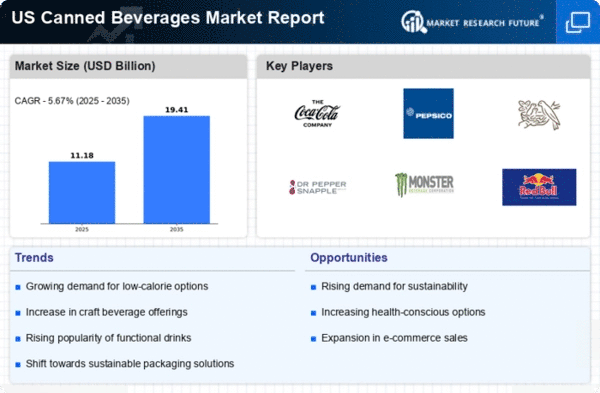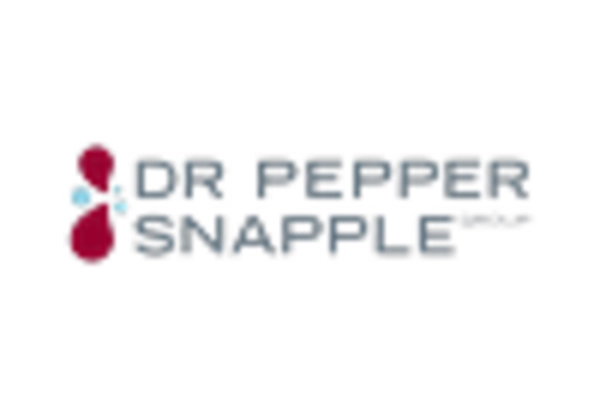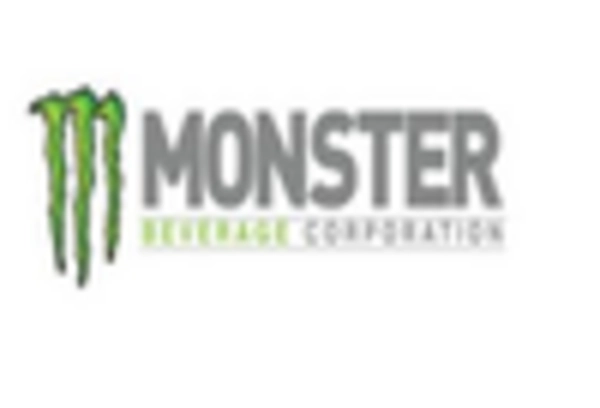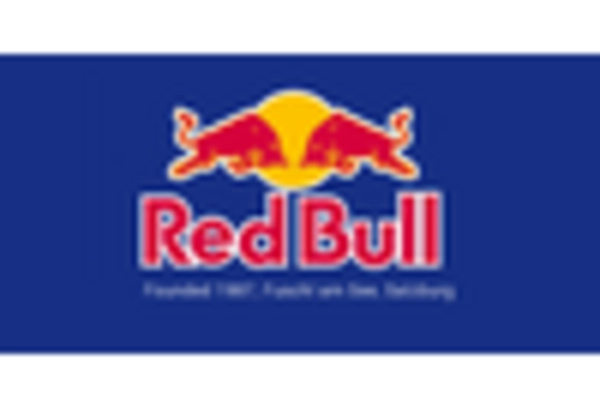Health and Wellness Trends
Health and wellness trends are significantly influencing the canned beverages market. As consumers become more health-conscious, there is a growing demand for beverages that align with their wellness goals. This includes low-calorie, organic, and functional beverages that offer added health benefits. Recent surveys indicate that nearly 40% of consumers are actively seeking healthier options in their beverage choices. This shift is prompting brands to reformulate existing products and introduce new offerings that cater to health-oriented consumers. Consequently, the canned beverages market is adapting to meet these evolving preferences, which may lead to increased sales and market expansion.
Focus on Flavor and Variety
The focus on flavor and variety is a driving force in the canned beverages market. Consumers are increasingly seeking unique and diverse flavor profiles, prompting brands to innovate and expand their product lines. This trend is evident in the rise of craft beverages and exotic flavors, which cater to adventurous palates. Recent market analysis shows that flavored canned beverages have captured a 25% share of the overall market, indicating a strong consumer preference for variety. As brands continue to experiment with new flavors, the canned beverages market is poised for further growth.
Rising Demand for Convenience
The canned beverages market is experiencing a notable surge in demand for convenience-oriented products. As consumers increasingly seek quick and easy options, the appeal of canned beverages, which offer portability and ready-to-drink solutions, becomes evident. This trend is particularly pronounced among busy professionals and millennials, who prioritize convenience in their purchasing decisions. According to recent data, the convenience segment of the canned beverages market has grown by approximately 15% over the past year. This shift indicates a broader consumer preference for products that fit seamlessly into their fast-paced lifestyles, thereby driving growth in the canned beverages market.
Innovative Marketing Strategies
Innovative marketing strategies are playing a crucial role in shaping the canned beverages market. Brands are increasingly leveraging social media platforms and influencer partnerships to engage with younger demographics. This approach not only enhances brand visibility but also fosters a sense of community among consumers. Recent statistics suggest that brands utilizing targeted digital marketing have seen a 20% increase in sales within the canned beverages market. By creating compelling narratives around their products, companies are able to resonate with consumers on a personal level, thus driving demand and expanding their market share.
Expansion of Distribution Channels
The expansion of distribution channels is significantly impacting the canned beverages market. Retailers are increasingly diversifying their offerings by including canned beverages in various outlets, from convenience stores to online platforms. This broadening of access allows consumers to purchase their preferred beverages with greater ease. Data indicates that online sales of canned beverages have risen by 30% in the last year, reflecting a shift in consumer purchasing habits. As more consumers turn to e-commerce for their beverage needs, the canned beverages market is likely to benefit from enhanced visibility and availability.

















